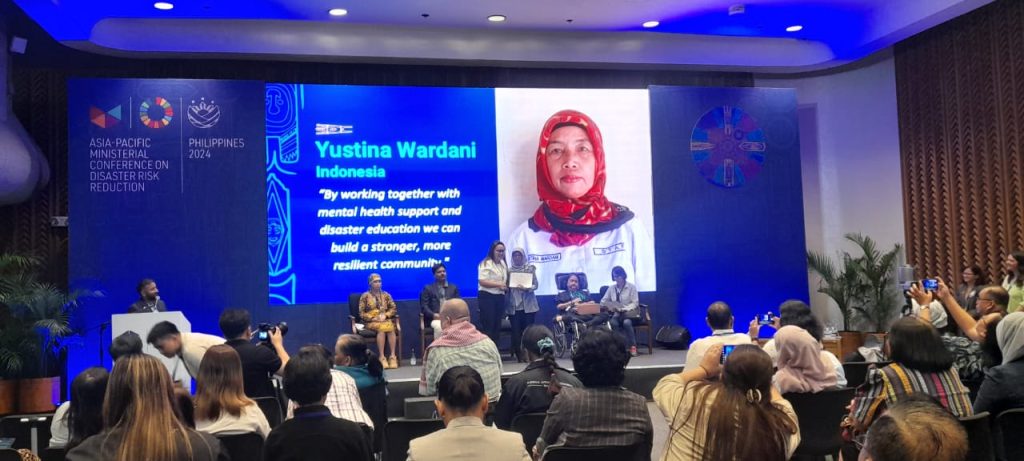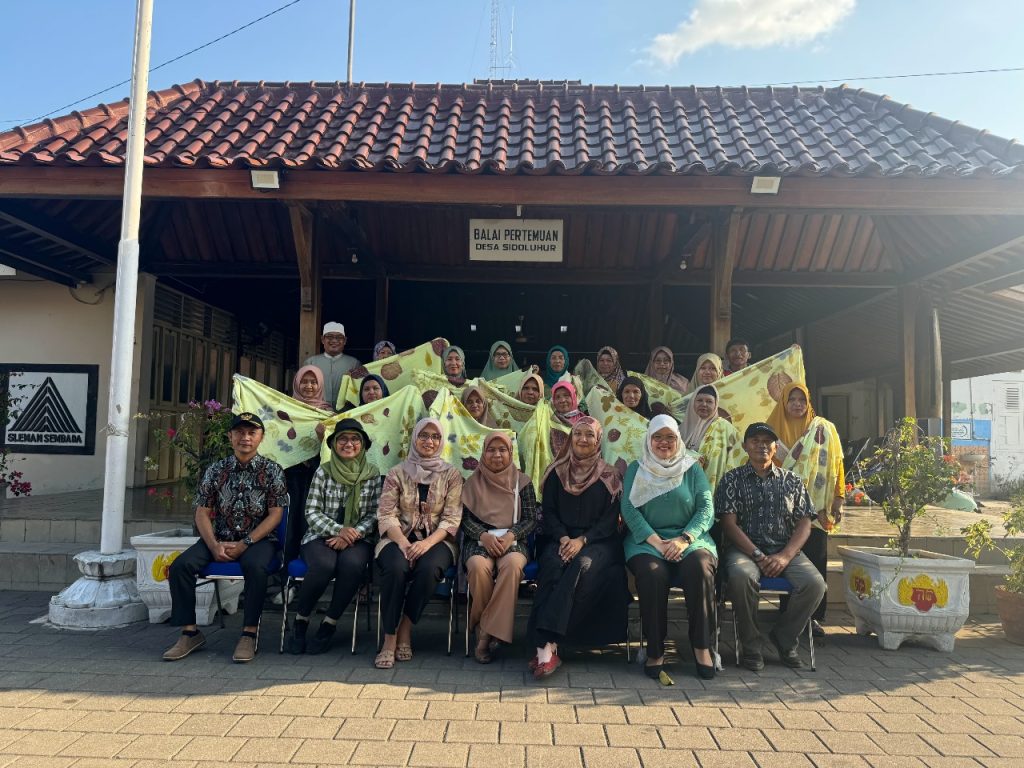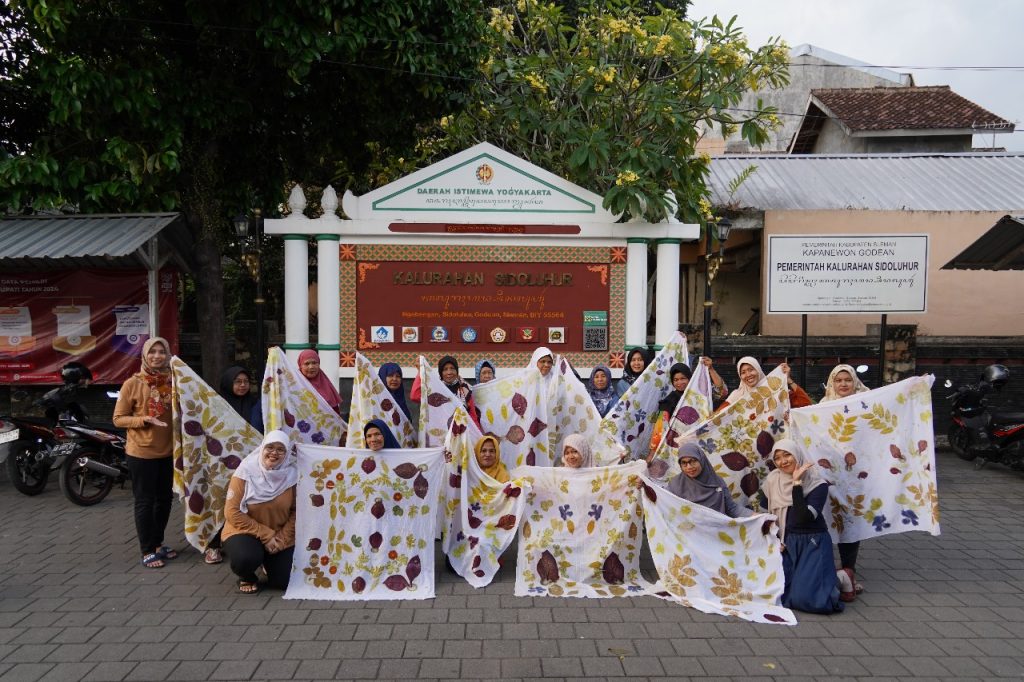
Paguyuban Luhur Jiwo, as one of the targets of the community service team from the Agricultural Extension and Communication Study Program (Prodi PKP) at the Faculty of Agriculture, Universitas Gadjah Mada, successfully won second place at the 2024 Asia-Pacific Local Leaders Forum for Disaster Resilience (APLL4DR) in Manila, the Philippines, on October 14, 2024. Paguyuban Luhur Jiwo, represented by Yustina Wardani, received support from the Prodi PKP community service team, coordinated by Mesalia Kriska, S.P., M.Sc., particularly in the creation of a profile video of the community’s activities, which was compiled by Abdurahman Agosto, S.T., and Ishadiyanto Salim, S.Pd., M.Pd. as a supporting element for the presentation.
The community service activities at Paguyuban Luhur Jiwo, located in Sidoluhur Village, Kapanewon Godean, Sleman, DIY, took place during September–October 2024. Paguyuban Luhur Jiwo is a self-help group (SHG) that focuses on social rehabilitation and recovery, aiming to help People with Psychosocial Disabilities (ODDP) in the Sidoluhur Village become independent and empowered.

“Our discussions with Paguyuban Luhur Jiwo revealed that they aspire to develop agricultural land called ‘Taksi Kencana’ (Taman Edukasi Inklusi Kesiapsiagaan Bencana) as a center for rehabilitation activities for the ODDP members of Paguyuban Luhur Jiwo. Furthermore, they had previously been trained in eco-pounding techniques and are interested in learning ecoprinting as an additional livelihood option, alongside processing ginger syrup and tie-dye batik,” explained Mesa about the community service activities carried out by the program.
Mesa also mentioned that Paguyuban Luhur Jiwo members expressed an interest in using the plants at Taksi Kencana as materials for ecoprinting, prompting the PKP Study Program to provide additional plant seedlings. The training sessions were held on 9, 10, and 12 September 2024, with 15 participants from the community, caregivers, and members of the local Women’s Farmers Group (KWT). The ecoprint training featured resource person Hastin Solikhah, S.Sn., a Cultural Village Companion. Additionally, the PKP Study Program also organized a training on plant cultivation for ecoprinting, led by Rani Agustina Wulandari, S.P., M.P., Ph.D., a lecturer in the Department of Agricultural Cultivation at the Faculty of Agriculture, UGM. The ecoprint products created by the participants were then presented at the APLL4DR event.

Dyah Woro Untari, S.P., M.P., Head of the PKP Study Program, added that Paguyuban Luhur Jiwo’s victory brought them regional recognition and could serve as a reference for similar initiatives at the national level for other self-help groups. Moreover, this program is expected to empower the Paguyuban Luhur Jiwo community, promote economic independence, and strengthen their capacity to manage sustainable agriculture-based businesses.
Support from the PKP Study Program reflects a strong commitment to achieving the SDGs, particularly SDG 1: No Poverty, SDG 2: Zero Hunger, SDG 8: Decent Work and Economic Growth, SDG 9: Industry, Innovation, and Infrastructure, SDG 10: Reduced Inequality, and SDG 17: Partnerships for the Goals.
Authors: Happy Nastasya Salsabilla, Azizah Nur Rohmah, Nafeny Nirmalasiwi
Editor: Hanita Athasari Zain
Photos: Documentation of the PKP Study Program
